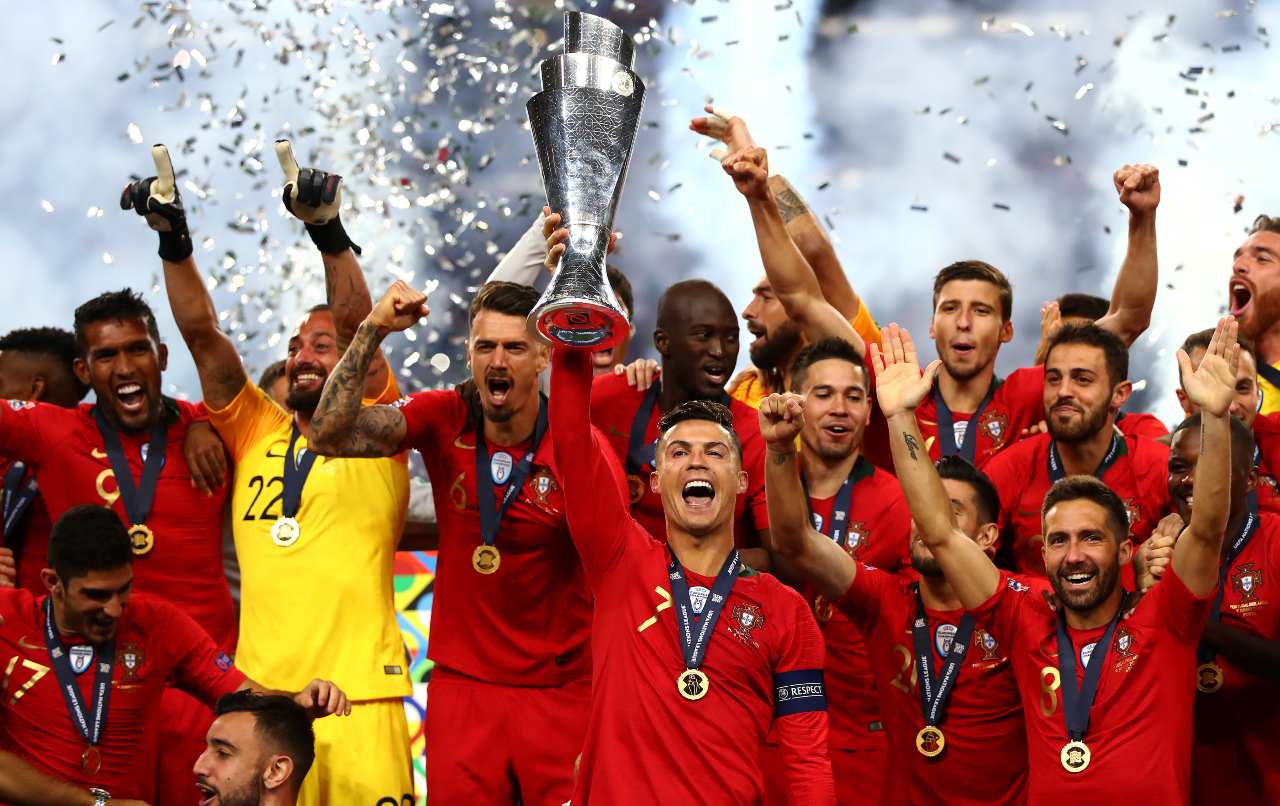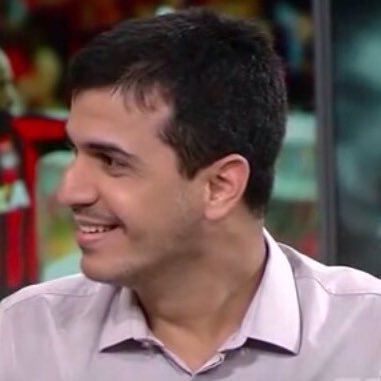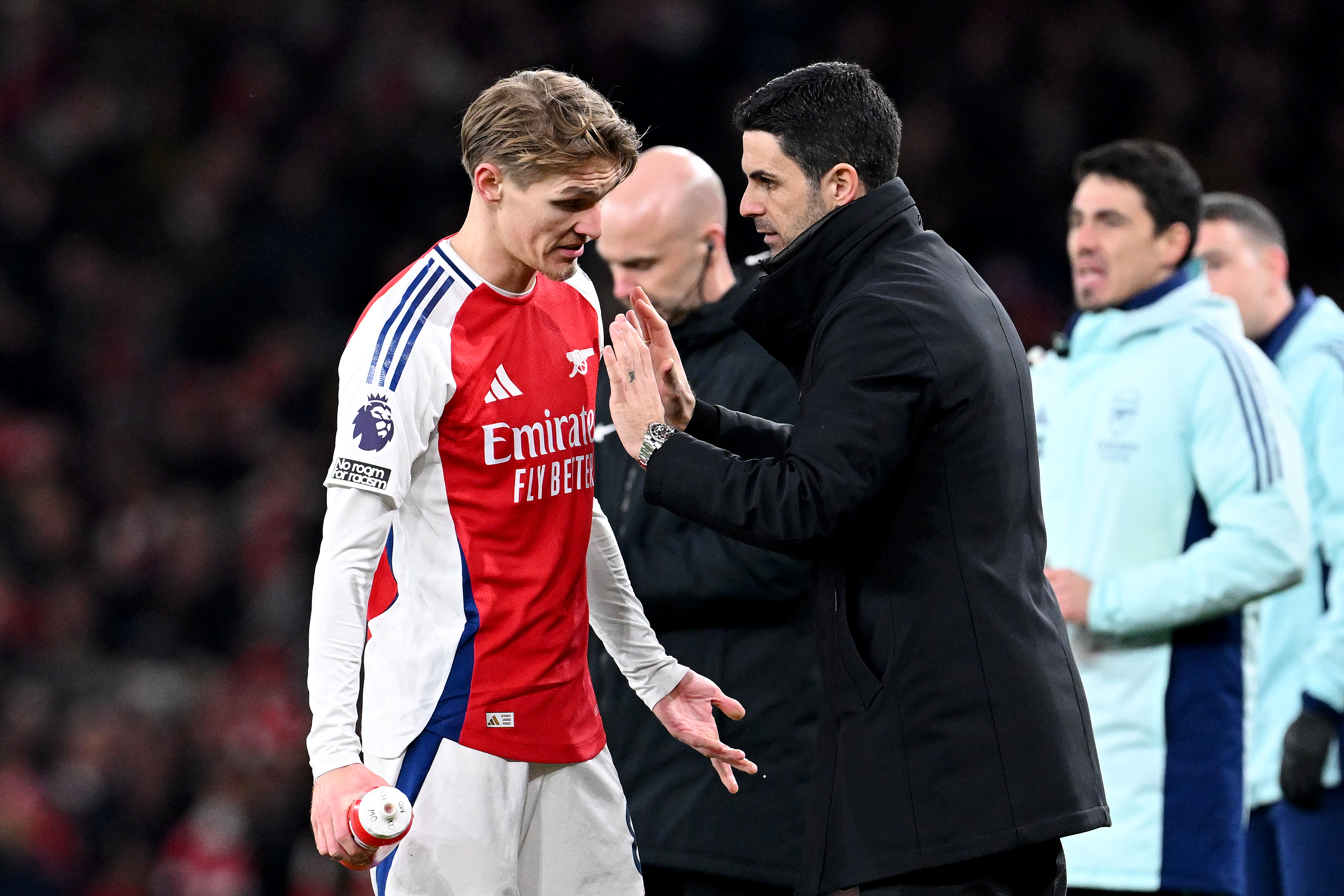Euro 2020: Should Cristiano Ronaldo be in Portugal's starting XI?
Cristiano Ronaldo may be on the verge of international immortality for Portugal, but not everyone thinks the 36-year-old should be in Fernando Santos’ team this summer. Here’s why they’re uttering the unthinkable back home...

This feature first appeared in the Summer 2021 issue of FourFourTwo magazine. Subscribe now!
Cristiano Ronaldo was enjoying the fresh air and chatting with his best friend and advisor, Ricardo Regufe, when out of nowhere he stopped the conversation. With a couple of whistles and a swirl of his right hand, CR7 called time and gave the gesture to his Portugal colleagues – turn around, lads, we’re going home. Without a word, they followed him back to the team hotel like a pack of faithful pets.
That scene took place on the Cascais coastline near Lisbon, amid a crowd of fans, photographers and cameramen in October 2019. It’s part of a ritual that the reigning European champions have on matchdays: before each game, players and staff go for a morning walk, mingling with locals, posing for pictures and signing autographs. It rarely lasts more than half an hour, and often ends when it feels right for Ronaldo.
No player in international football – and, yes, that includes Lionel Messi – has influence quite like the Juventus forward, who became Portugal’s permanent captain 13 years ago at the age of just 22.
Not even when he threw his armband to the ground in disgust, after a late winner wasn’t deemed to have fully crossed the goal line in the Selecao’s 2-2 draw with Serbia in March, was CR7’s leadership called into question. Asked if Ronaldo would retain the captaincy following the incident, Portugal coach Fernando Santos actually burst out laughing. “Cristiano is a national example,” he guffawed. “Nobody will say his reaction was beautiful, but there’s no point discussing if he should keep the armband.”
Cristiano Ronaldo is FUMING! 😡Portugal's captain stormed off the pitch and threw his armband on the floor after he was denied a last-minute winner against Serbia...😳pic.twitter.com/eYQX0iKyzKMarch 27, 2021
Off the pitch, the five-time Champions League winner’s clout remains undisputed – it’s far greater than when he was originally handed leadership honours in 2008. On the pitch, however, the same can’t be said. Whisper it, but as Portugal head into a first major tournament as defending champions this summer, there’s growing pressure back home to address the elephant in the room: would Santos’ outfit actually be better off without their talismanic skipper?
The debate has bubbled for some time, but only recently has it gained true prominence thanks to the emergence of what is viewed as the country’s greatest ever generation of talent. It would once have been sacrilege to publicly suggest that Portugal played better without their biggest star. But now? The tide, it seems, is turning.
Get FourFourTwo Newsletter
The best features, fun and footballing quizzes, straight to your inbox every week.
One school of thought suggests the Selecao are far more enjoyable to watch in Ronaldo’s absence. Portugal’s 4-1 demolition of 2018 World Cup runners-up Croatia last September has been the turning point. With the skipper sidelined that night, Bruno Fernandes, Joao Felix, Diogo Jota and Bernardo Silva stepped up and produced arguably the best display of the entire six-and-a-half-year Santos era so far. It’s no exaggeration to say they could have easily scored twice as many goals at Porto’s Estadio do Dragao.
Such a showing put to bed any uncertainty about Portugal’s potential without Ronaldo, yet it also offered a glimpse of how they may play without having to pander to one man’s planetary-sized ego.
“Portugal perform with more quality when he isn’t around,” explains O Jogo journalist, Duarte Tornesi. “His mere presence on the field makes other players look to pass to him at the first chance – an automatic reaction that inhibits them from playing to the best of their abilities. It’s very clear when you talk about Bernardo Silva, Bruno Fernandes, Joao Felix and even Andre Silva: they could all do much more for the team if they broke free from this unconscious tie.
“Only time will tell if they’ll be able to do this, and sustain a successful period in which the Selecao – driven by the phenomenon of Ronaldo – have become one of the greatest teams in the world.”
Until five years ago, the only senior trophy that Portuguese fans had ever watched their country claim was the 1995 SkyDome Cup – a hilariously low-rent competition contested on artificial turf in Toronto between hosts Canada, a ‘Denmark League XI’ and similarly alternative Portugal side.
That all changed with the rise of Ronaldo, who inspired his country to the Euro 2016 and 2019 Nations League titles after years of near-misses – not least 2004’s chastening final defeat to Greece on home soil. It’s not exactly hard to explain why Santos insists that the five-time Ballon d’Or winner is the only player guaranteed a place in his starting line-up, despite often facing questions about Ronaldo’s all-round contributions. The pair have known each other since their time at Sporting back in 2003, where something of a father-son relationship began.
🇵🇹 His 101st international goal was another strike to remember 🎯@selecaoportugal | @Cristiano pic.twitter.com/2nxh66xTIBFebruary 5, 2021
Of the 82 Portugal games that Santos had managed before the end of May 2021, Ronaldo had been involved in 59 of them. Many fans feel that should be enough for the coach to figure out a combination that brings the best from his array of attackers, despite the increased silverware.
“The fact that Portugal play differently with Ronaldo says more about Santos than Ronaldo himself,” argues Eleven Sports and Antena 1 analyst Luis Cristovao. “Portugal don’t have a game identity, a plan per se, so it varies according to their available players. In Ronaldo, we’ve got a very decisive player in the final third; without him, there’s the need for a more inclusive game plan. That’s the difference between the two situations.”
Therein lies the paradox: although the Selecao have a goalscoring fear factor with Ronaldo, they play more beautifully without him. Regardless of how pleasant the latter is on the eye, Santos is an arch pragmatist who doesn’t value style as much as the fans. He has stated plenty of times that he doesn’t believe “there is such a thing as playing beautifully and ugly”.
Ultimately, winning is what matters and, in Santos’ mind, no other footballer brings him closer to that than Ronaldo, Portugal’s all-time top scorer. Soon, CR7 will be also be international football’s record marksman.
“My wife insists I’m the most handsome man in the world, but she knows I’m not and I know it too,” Santos chimed in 2016, responding to criticism about his team’s aesthetics. “It all depends on the eyes of the beholder. In football, there’s only good and bad: either you play well or play badly.”
No one in the squad has ever disputed Ronaldo’s place in the team, of course – and it’s highly improbable anyone will. Unlike in the past, when Portugal had several different powerful voices in the dressing room – Luis Figo, Rui Costa, Joao Pinto and Fernando Couto in the ’90s to name a few – Ronaldo is the sole leader of their camp. Players who are known for openly calling out team-mates at club level such as Bruno Fernandes, who made himself look like part of the furniture at Manchester United within weeks, are nowhere near as vocal in the national team. It’s something that probably won’t change anytime soon – at least not while you know who remains around.
“I don’t want to say it’s impossible because there’s no such thing in football, but it’s hard – really hard – to imagine Ronaldo on the bench for Portugal, regardless of the context,” says Expresso reporter Mariana Cabral. “For his stature in the game, his influence, being a symbol, I can’t see it happening. He wants to break the record for the most international goals scored and play at the Euros. After that, no one knows. I have no doubt that it will be he who puts an end to his Portugal career. Cristiano is not a player to be left on the substitutes’ bench.”
Santos clearly agrees, so eventually it all comes down to finding the right balance. How to best utilise a player who started life as a tricky winger with bags of pace and panache at Sporting, and has since evolved to become a dominant centre-forward? And, how to do so without inhibiting the talents of those around him?
Ronaldo will inevitably be on the pitch when the Selecao kick off their title defence against Hungary on June 15 in Budapest. Despite the scepticism of some back home, he will still command the majority of support in inspiring a generation of supporters in the same way he did when first featuring at the European Championship in 2004.
A 19-year-old Ronaldo may have failed to deliver the trophy back then, but his displays on home soil persuaded plenty of swooning compatriots to name their children after him. Aside from the superstar himself, there are 32 other Cristiano Ronaldos registered in the Portuguese football federation’s database – a dozen were born around the same time as that major tournament.
For Santos, however, there will only ever be one Cristiano Ronaldo: the boy from Madeira who remains his best route to victory.
Subscribe to FourFourTwo today and get your first five issues for just £5 for a limited time only - all the features, exclusive interviews, long reads and quizzes - for a cheaper price!
NOW READ
RETRO Cristiano Ronaldo's stunning 2007/08 for Manchester United
PREVIEW Portugal Euro 2020 squad: full 26-man squad revealed
STARS OF EURO 2020 13 players who could light up the tournament
Marcus Alves is a freelance journalist based in Lisbon and has written for FourFourTwo since 2012. He can also be found at BBC Sport, the Telegraph, Kicker and Yahoo. A former ESPN reporter, he covered 12 games in 15 days during the 2014 World Cup in Brazil, but can barely remember any of them. He blames cachaça for that.

